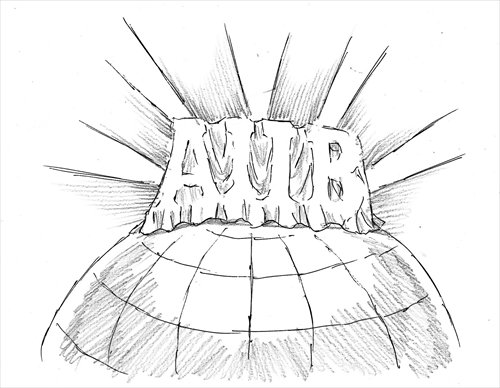HOME >> BUSINESS, LAZY PACK
De-sinicization can counter concerns about AIIB
Source:Global Times Published: 2015-12-3 22:03:01

Illustration: Peter C. Espina/GT
The launch of the Asian Infrastructure Investment Bank (AIIB) is expected to be announced soon, and some have expressed concerns that the new bank will be used by Beijing as a tool to boost China's influence.
The AIIB may need to think calmly and seriously about how to advocate de-sinicization to win more extensive recognition, but the new bank should not be trapped by political considerations and should not deliberately avoid Chinese elements.
The AIIB has once again been in the global headlines, after Jin Liqun, president-designate of the bank, said Tuesday that the AIIB would start operating in the second quarter of 2016 and is expected to lend between $10 billion and $15 billion a year during its first five or six years. Reuters said in a recent report that the US has expressed concern over how much influence China will wield in the new institution.
Although Jin had said the AIIB won't attempt to boost the influence of Beijing and Chinese firms, Reuters still described the emerging multilateral institution as "China's new international development bank" in its report. In response to such misunderstandings, the AIIB will have a both urgent and long-term task of advocating de-sinicization after its official launch.
The most effective method of de-sinicization is to adhere to business principles, which is also the only way to coordinate the stances and interests of the bank's various member nations. The 57 founding members represent most of the major countries and regions in Asia and developed economies.
Jin said Tuesday that the US dollar, rather than China's yuan, would be the operating currency of the AIIB. This was not much of a surprise given the dollar's high level of acceptance among global investors, but it does provide evidence for the bank's claim that it will be operated according to business principles, rather than political intentions.
Second, an open attitude to diversified member nations will also be beneficial to the process of de-sinicization. As the largest shareholder in the AIIB, China's voting shares are calculated at 26.06 percent, suggesting virtual veto power over major decisions. However, as more countries join the bank, China's shareholding will be diluted.
China has said the AIIB is open to the US and Japan, but the two countries have so far chosen not to join the bank because of concerns that the US-dominated World Bank and Japan-led Asian Development Bank (ADB) would be marginalized. However, it is partly because of the absence of these two major economies that China can hold such a large shareholding in the AIIB. Therefore, the participation of the US and Japan, if it happens, will serve as an important step for the bank in its process of de-sinicization.
However, excessive de-sinicization is equally dangerous because it would prevent the bank from learning from the experience of existing development banks in China. The China Development Bank (CDB) and the Export-Import Bank of China (Exim Bank), two of China's main policy banks, have rich experience in financing infrastructure projects in Asia. So the operational methods of the CDB and Exim Bank can be drawn on by the AIIB as a reference after it starts operation.
It is now a trend to analyze China's economic issues from a political perspective, with some comments in the West describing both the establishment of the AIIB and the yuan's inclusion in the IMF's Special Drawing Rights (SDR) currency basket as foreign policy successes for China.
However, China has no intention of challenging the existing international financial order, and it is a false proposition that the China-led AIIB is a Chinese bank.
The article was compiled by Global Times reporter Hu Weijia based on interviews with Zhang Jianping, a research fellow with the Academy of Macroeconomic Research under the National Development and Reform Commission, and Wang Yongzhong, a research fellow with the Institute of World Economics and Politics at the Chinese Academy of Social Sciences. bizopinion@globaltimes.com.cn
Posted in: Commentary, Expert assessment